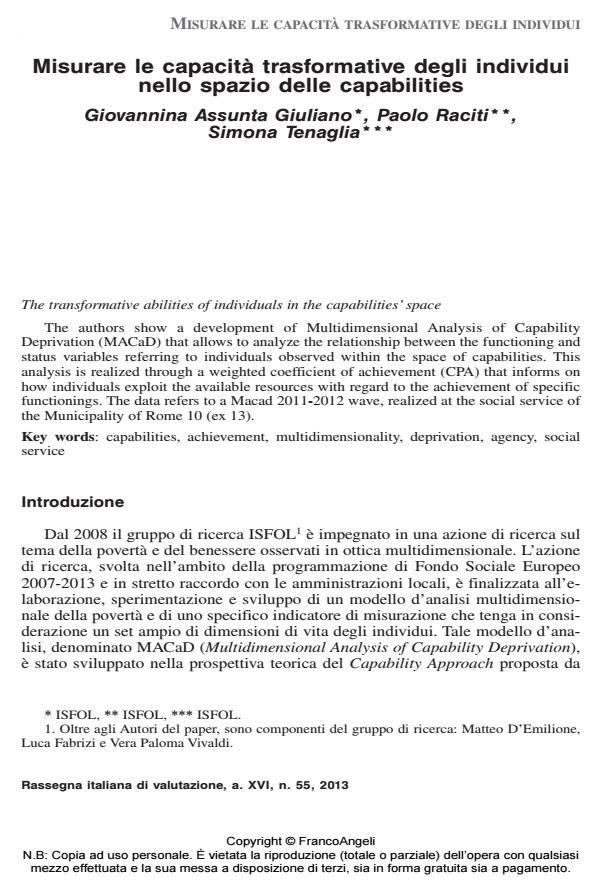The transformative abilities of individuals in the capabilities’ space
Journal title RIV Rassegna Italiana di Valutazione
Author/s Giovannina Assunta Giuliano, Paola Raciti, Simona Tenaglia
Publishing Year 2014 Issue 2013/55
Language Italian Pages 23 P. 128-150 File size 2030 KB
DOI 10.3280/RIV2013-055008
DOI is like a bar code for intellectual property: to have more infomation
click here
Below, you can see the article first page
If you want to buy this article in PDF format, you can do it, following the instructions to buy download credits

FrancoAngeli is member of Publishers International Linking Association, Inc (PILA), a not-for-profit association which run the CrossRef service enabling links to and from online scholarly content.
The authors show a development of Multidimensional Analysis of Capability Deprivation (MACaD) that allows to analyze the relationship between the functioning and status variables referring to individuals observed within the space of capabilities. This analysis is realized through a weighted coefficient of achievement (CPA) that informs on how individuals exploit the available resources with regard to the achievement of specific functionings. The data refers to a Macad 2011-2012 wave, realized at the social service of the Municipality of Rome 10 (ex 13).
Keywords: Capabilities, achievement, multidimensionality, deprivation, agency, social Service
Giovannina Assunta Giuliano, Paola Raciti, Simona Tenaglia, Misurare le capacità trasformative degli individui nello spazio delle capabilities in "RIV Rassegna Italiana di Valutazione" 55/2013, pp 128-150, DOI: 10.3280/RIV2013-055008